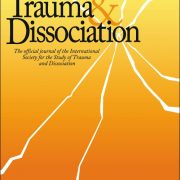Intervoice Congress 2021
The 12th World Hearing Voices Congress, Online, 1 – 3 September 2021.
“Solidarity in Times of Adversity:
The Global Voice Hearing Community Reconnecting”
Congress Theme
Over the past 18 months, the Covid-19 pandemic has caused an unprecedented challenge across the globe, which many of us will have experienced as disconnecting, isolating, frightening, chaotic, overwhelming, and, at times, unbearable. However, the pandemic has also shown the power of solidarity when communities come together to offer each other support in times of adversity.
This year’s Congress will create spaces for voice hearers, family members, carers, practitioners, academics, and all those interested in the principles and values of the International Hearing Voices Movement, to connect and/or reconnect with one another in a post-pandemic world, either in person in Cork, Ireland or online across the globe. Drawing on two ancient Irish traditions, the Congress organisers aim to provide a platform (ardán*) to focus on the ways in which many voices can work together, supporting each other in difficult times (meitheal*).
*Ardán (pronounced ar-dawn) is an Irish word meaning platform, stage, but it is also used in the context of ‘raising one spirits’!
*Meitheal (pronounced meh-hill) is the Irish expression of the ancient and universal appliance of cooperation to social need, referring to the co-operative labour system in Ireland where neighbours help each other in turn with farming work, such as harvesting crops. It establishes community unity through cooperative work and mutually reciprocal support.
Confirmed Speakers:
Jacqui Dillon (UK), will open the Congress, Rai Waddingham (UK), Cindy Marty Hadge (USA), Peter Bullimore (UK), Hearing Voices Network Athens (Greece), Adi Hasanbasic (Czech Republic), Kate Fiske (Australia) – The Listening to Voices Project.
Congress Format
Congress will have online format. Delegates will be able to access all the keynote presentations, all the online concurrent sessions, and all the networking sessions. See Registration details below.
Registration Details
Click Here to Register via credit card or see below for registration and bank transfer payment option.
Registrants will be able to attend all keynote presentations, online concurrent sessions, all networking sessions, and all online events offered during breaks.
Fees:
Intervoice Day (1 day) and Congress Days (2 Days)
Voice Hearers/Students: Sterling £45.00 or Euro €53.00
Practitioners: Sterling £65.00 or Euro €75.00
For those of you who do not have access to a credit card to buy a ticket for the Congress, you may send your payment via PayPal or bank transfer to the bank account of Harry Gijbels, HVNI Treasurer.
Payment can be made in Euro (€53.00 for voice hearers/students and €75.00 for professionals) or Sterling (£45.00 for voice hearers/students and £65.00 for professionals).
Please make sure you mention Intervoice Congress in the reference line when you transfer the money.
You also need to send an email to Harry Gijbels at h.gijbels@ucc.ie to confirm that you have made the bank transfer and provide Harry with your Complete Name and Email Address. Harry will then forward your email to Onlinevents, who will register you to the event. You will receive an email once they have registered you.
A single bank transfer, covering more places, can also be made, as long as an email to Harry Gijbels clarifies the booking in which all the Complete Names and Email Addresses of applicants are included.
Making a payment in the above way is consent for HVNI to share your name and email address with ONLINEVENTS LTD”
Account details:
Harry GijbelsIBAN: IE72AIBK93012103915016
BIC: AIBKIE2D
ACCOUNT NUMBER: 03915016
NSC: 930121
We hope you can join us. For any more information, please email us on info@hearingvoicesnetworkireland.ie
The Online Congress Venue (Irish Standard Timezone):
Zoom platform, managed and facilitated by Onlinevents
Congress Programme
1 September: Intervoice Day
2 and 3 September: World Hearing Voices Congress
Intervoice Day (1st September)
A day for people involved in the Hearing Voices Movement to come together, share experiences, and hear about new initiatives around the world. The day will consist of speakers, open space discussions about topics decided by attendees and the chance to share what is happening in Hearing Voices Networks across the globe. The Intervoice Day is organised by members of the Intervoice Board.
World Hearing Voices Congress (2nd and 3rd September)
Each day will consist of keynote presentations and concurrent workshops/presentations. We hope to provide opportunities for all time zones to have the opportunity to engage with the Congress.








 It is just over 50 years since the publication of Sanity, Madness and the Family, R.D. Laing’s and Aaron Esterson’s groundbreaking study of ‘schizophrenia’ in 11 young women. Birkbeck Research in Aesthetics of Kinship and Community (BRAKC) and the Birkbeck Guilt Working Group have organized a one-day symposium to discuss the lasting impact of that book.
It is just over 50 years since the publication of Sanity, Madness and the Family, R.D. Laing’s and Aaron Esterson’s groundbreaking study of ‘schizophrenia’ in 11 young women. Birkbeck Research in Aesthetics of Kinship and Community (BRAKC) and the Birkbeck Guilt Working Group have organized a one-day symposium to discuss the lasting impact of that book.